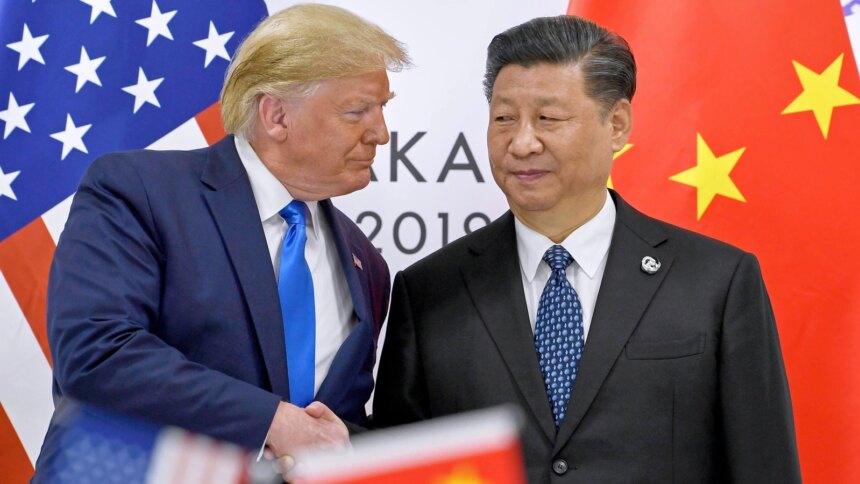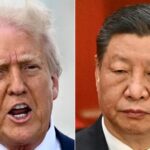In a significant escalation of tensions between the United States and China, President Donald Trump announced on Friday that a new 100% tariff on Chinese imports will take effect on November 1. This controversial move comes in response to China’s recent export restrictions on rare earth minerals, which are crucial for various industries including electric vehicles, smartphones, and military equipment.
Trump took to Truth Social to express his disbelief over China’s actions, stating, “It is impossible to believe that China would have taken such an action, but they have, and the rest is history.” The announcement sent shockwaves through global financial markets, leading to a notable decline in major indices. The Nasdaq Composite dropped by 3.6% and the S&P 500 fell by 2.7%, marking Wall Street’s steepest decline since April.
Currently, Chinese goods are subjected to 30% tariffs, a legacy of previous trade policies under Trump’s first term. In retaliation, China has imposed a 10% duty on American products. Experts suggest that the new tariff could effectively curtail bilateral trade between the two nations, aggravating concerns about a potential slowdown in the global economy.
The tension escalated further after China implemented stricter export controls on rare earth elements. These restrictions, which involve requiring special permits for exports and limiting shipments of relevant technologies, have drawn sharp criticism from Trump, who accused Beijing of “holding the world captive” by weaponizing its control over these essential resources. He characterized China’s stance as increasingly hostile and threatening.
According to data from the Centre for Strategic and International Studies, China commands nearly 70% of global rare earth mining and over 90% of magnet production. Experts argue that these restrictions could further deepen the existing supply chain crises, which have already strained the economies of the U.S. and its allies.
The rising tensions have also raised questions regarding the upcoming Asia-Pacific Economic Cooperation (APEC) summit, where Trump was expected to meet Chinese President Xi Jinping for the first time since returning to office in January. While Trump indicated uncertainty about the meeting, saying, “I was to meet President Xi in two weeks… but now there seems to be no reason to do so,” he later clarified that he had not yet canceled.
Chinese analysts have characterized Trump’s tariff announcement as a “disproportionate reaction” and have yet to issue an official response. Economists fear that this sudden escalation could trigger a new wave of instability in the global economy. Craig Singleton, a senior director at the Foundation for Defense of Democracies, warned that this could signal “the beginning of the end of the tariff truce,” with both nations seemingly unwilling to compromise.
The ramifications of this trade conflict extend beyond the U.S. and China, especially for economies like India, which relies on imports of critical electronics components and raw materials from both countries. A prolonged trade war could disrupt supply chains and lead to increased prices globally.
Rare earth elements, a group of 17 metallic elements, are vital for the production of key technologies such as smartphones, electric vehicles, wind turbines, and military equipment. China’s dominance in this sector makes these resources a strategic asset in geopolitical considerations, underscoring the international stakes involved in this evolving economic showdown.







